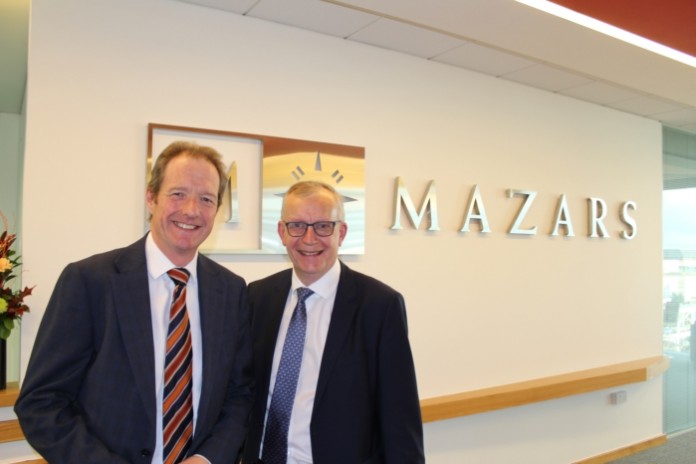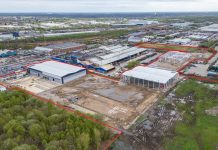
The failure to predict the outcome and impact of a number of events has not made the Bank of England’s job of forecasting the future path of the economy any easier this year.
Phil Eckersley, the Bank’s Agent for the South East and East Anglia, told an invited audience this at an event hosted by international accountancy firm Mazars in Milton Keynes while taking soundings from businessmen and local professionals over a private lunch.
He said that as late as May this year, six out of seven pollsters had predicted that the UK would vote to remain in the EU and, as little as a year earlier, experts in the US had given Donald Trump a 28 per cent chance of being elected President.
So why did the Bank of England predict weaker growth in the third quarter of 2016?
“Because the Bank of England’s growth projections in the aftermath of the Referendum were, in part, conditioned by the negative messages from businesses, signalling heightened uncertainty and an easing off in employment and investment intentions” he said.
In the event GDP turned out stronger than expected “which might suggest businesses had over-reacted too”, he pointed out.
The reason for the better than expected figures, he said, appeared to be that the consumers took a more positive view of Brexit than businesses. In other words, household consumption supported growth.
“It will be interesting to see the appointments around him that the new President of the United States makes in the coming months,” he said.
“He has not really told us what he is going to do and in the interim, since the Referendum vote, we have seen a sharp fall in the value of sterling which is of inflationary concern to the Monetary Policy Committee, albeit it might support some rebalancing of the economy by boosting exports” he said.
It was noted that not only the UK and the US were contemplating new hands on the helm. At least five European heads of state will come up for re-election, or resign, during the two to five year period of planned Brexit negotiations.
Turning to the UK, guests expressed concerns that skills shortages, exacerbated by a failure to train post 2009, could boost wage inflation.
Some highly skilled posts were seeing sharp increases in salaries as companies competed for individuals with skills that they coveted.
One guest commented: “In our case, the skills shortage is driving cost pressure more than the cost of raw materials or finished goods.”
Phil Eckersley acknowledged that he had picked up widespread evidence of skills shortages and said it was a concern at national level.
Guests commented that re-shoring was an option that many more companies were examining.
Not just currency effects, but also intellectual property issues and the closing gap between production costs in different countries all had to be added into the equation now.
Guests also commented on the fragmentation of the finance marketplace, with many companies seeking to finance growth by peer-to-peer lending, crowd funding, or equity stakes from high net worth individuals, rather than traditional bank funding.
Stephen Eames, managing partner of Mazars in Milton Keynes, said: “Mazars is keen to support the Bank of England to better understand the challenges being faced by local businesses, in order to continue to support our clients and the needs of their businesses.”
He thanked Mr Eckersley and the guests for their insight and observations on the economy.




















